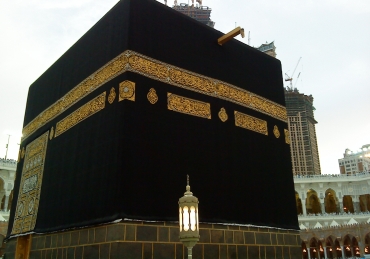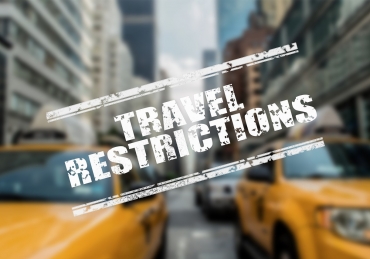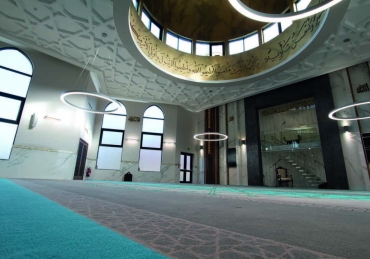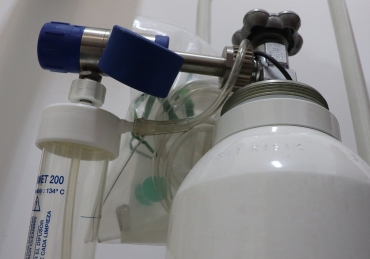10 Covid-19 related Q&As
بسم الله الرحمن الرحیم
1) Once the lockdown is over, will it be permissible to visit the family of a deceased locally for Taʿziyah because of our inability to do so at the moment?
It will be permissible to visit the family for Taʿziyah.
2) Those who have passed away due to Covid-19, are they martyrs?
Those who pass away due to Covid-19 are martyrs as clear from many ḥadīths. However, this is in relation to the hereafter. The rules of martyrs of a battlefield, for example in relation to bathing and shrouding, do not apply to Covid-19 deaths.
3) If a person from Blackburn travels to a neighbouring town such as Preston, is it contravening the ḥadīth that prohibits a person from leaving the town where there is a pandemic?
One of the reasons for the prohibition in the ḥadīth is to avoid harming others potentially. Therefore, one must abide by the lockdown measures and avoid unnecessary journeys. However, if it is necessary for a person to travel to a neighbouring town, and they adopt the necessary precautions, this will not contravene the ḥadīth, as it is not fleeing from the pandemic.
4) If I am collecting some shopping for a non-Muslim elderly neighbour, do I need to check if it contains any Haram products? They do the purchasing. I merely collect the shopping bags which may contain Haram products.
If a person is merely collecting and delivering the shopping, he can do so and does not need to check the contents.
5) Can I purchase Ḥarām products for a non-Muslim?
It is not permitted for a Muslim to purchase Ḥarām products.
6) Can a six-year-old child read the iqāmah for congregational Ṣalāh?
A child can read the iqāmah for congregational Ṣalāh.
7) Can a female ḥāfiẓah of the Quran lead her husband and children in Tarāwīḥ Ṣalāh? What if there are only females?
A female cannot lead males in Tarāwīḥ Ṣalāh or otherwise. If there are only females in a house, there is scope for a female ḥāfiẓah to lead other female household members in Tarāwīḥ Ṣalāh only. In this case, she will stand in the middle with the females to the right and left with their heels slightly behind the female Imam’s heels.
8) We have arranged with the local authority that those who pass away from Covid-19 will be brought to our Masjid complex where 20 immediate family members can also view the deceased and perform Janāzah Ṣalāh. The bodies cannot be taken home. As female family members will also be present and the number of attendees will be limited, is it permissible for them to join in the Janāzah Ṣalāh?
If the female family members are present in the area where Janāzah Ṣalāh is taking place, they can join in the Ṣalāh. They will stand behind the men in a separate row. If non-Maḥrams are present, appropriate segregation should be arranged.
9) Our local authority has asked us, as part of contingency planning, whether they can allocate to us some land in the graveyard which has been consecrated by the Church of England, if the number of Covid-19 deaths in Muslims increases. This land is owned by the council similar to the land earmarked for Muslims which is owned by the council. It is just that the Church of England prays upon the land allocated to them in advance whilst the Catholics pray on the graves individually at the time of the funeral. The local authority is clear that if part of the consecrated land is given to Muslims, the graves will not be intermingled. Would this be acceptable?
If the land is owned by the local authority and they decide to allocate a part of the land to Muslims for burial, there is no harm in this. The section should be clearly distinguishable similar to the current areas allocated to Muslims, to avoid any confusion and potential problems in the future.
10) My Zakat anniversary has arrived, I have cash and I am unable to donate online, what should I do?
During the lockdown, a person should use online or postal methods to discharge their Zakat. If this not possible, contact a charity and request them to collect your Zakat if they are able to do so. If this is not possible and there are no other options, you should separate your Zakat money in an envelope and highlight in your waṣiyyah (will) that the money should be donated as soon as practically possible.
Allah knows best
Yusuf Shabbir
4 Ramadan 1441 / 27 April 2020
Approved by: Mufti Shabbir Ahmad and Mufti Muhammad Tahir
(For other Q&As & articles regarding Coronavirus, click here)







